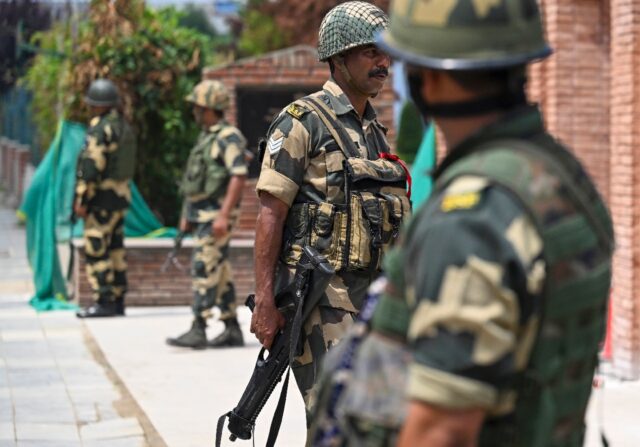Indian-administered Jammu and Kashmir will hold local elections for the first time in a decade, the head of the electoral commission said Friday, after polls were stalled following New Delhi’s imposition of direct rule in the disputed region.
The Muslim-majority region has been divided between India and Pakistan since their independence from British rule in 1947, and each side claims it in full.
“After a long gap, elections are due and will be held in Jammu and Kashmir,” chief election commissioner Rajiv Kumar told reporters in New Delhi.
Voting for the region’s assembly will be staggered over three stages between September 18 and October 1.
A total of 8.7 million people will be eligible to vote, the commission said.
Ballots from around the region will be counted all at once on October 4, and results are usually announced on the same day.
Some see the polls as a critical step in returning the vote to the people to choose their leaders.
But critics say the 90-seat assembly will only have nominal powers over education and culture, and critical decisions will still rest in New Delhi’s hands.
Some hardline separatists, who demand independence for Kashmir or its merger with New Delhi’s arch-rival Pakistan, oppose elections because they see them as lending validity to Indian control.
They demand a referendum to decide the future of the Himalayan region of around 12 million people.
‘Ballot over bullet’
About 500,000 Indian troops are deployed in the region, battling a 35-year insurgency that has killed tens of thousands of civilians, soldiers and rebels since 1989.
“Sufficient forces will be there to deal with any eventuality,” Kumar said, especially following a surge this year of attacks in the southern Jammu region.
Elections for five seats in India’s national parliament were held in June, and Kumar praised them for passing peacefully, with people having chosen the “ballot over bullet and boycott”.
The vote saw a 58.6 percent turnout, according to the election commission, a 30-percentage-point jump from the last parliamentary vote in 2019 and the highest in 35 years.
Key separatist leaders, who previously called for an election boycott, are in jail.
The Peoples Democratic Party, a key Kashmiri party, dismissed Friday’s election announcement as “too little, too late”.
“A powerful state with special status, has been reduced to a municipality,” party spokesman Mohit Bhan wrote on social media platform X.
The last Jammu and Kashmir assembly election was in 2014, when Prime Minister Narendra Modi’s Hindu-nationalist Bharatiya Janata Party (BJP) entered into a ruling coalition with the Peoples Democratic Party.
The assembly was dissolved in 2018 after the BJP pulled out and the coalition collapsed.
In 2019, Modi’s government cancelled the partial autonomy of the region, turning it into a federally administered “union territory”.
That change stalled planned polls, and since then there have been no local-level lawmakers.
Instead, it has been run by a New Delhi-appointed governor.
The 2019 constitutional amendment imposing direct rule also divided the region.
One part, Jammu and Kashmir — made up of the southern Jammu region with sizeable Hindu populations, and the mainly Muslim Kashmir valley — will have its own assembly again after the coming elections.
Another section, the high-altitude Ladakh region, which runs along the contested border with China, is not included in the assembly, and is controlled directly by New Delhi.

COMMENTS
Please let us know if you're having issues with commenting.